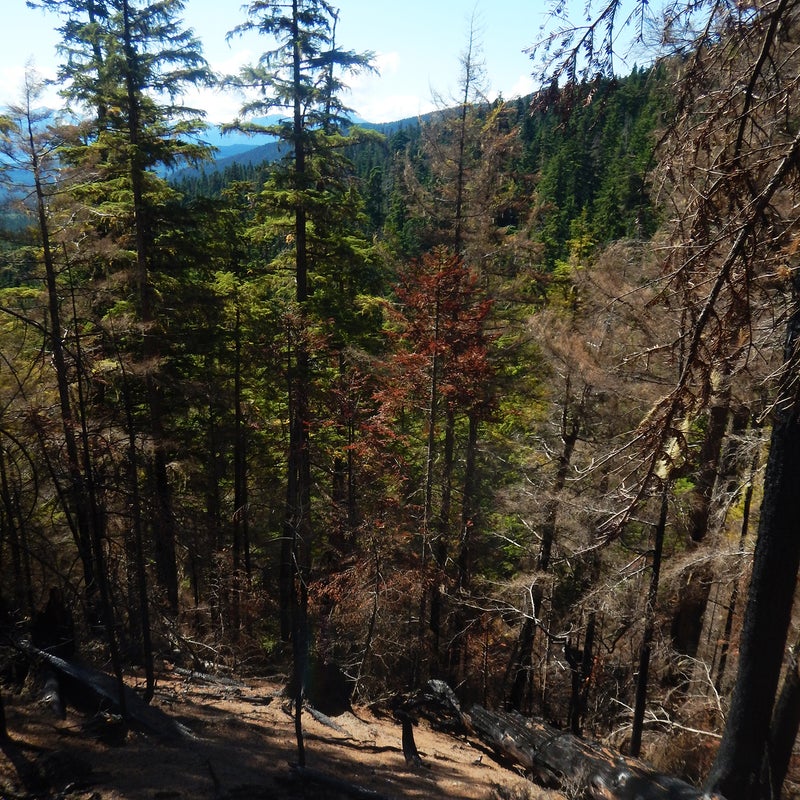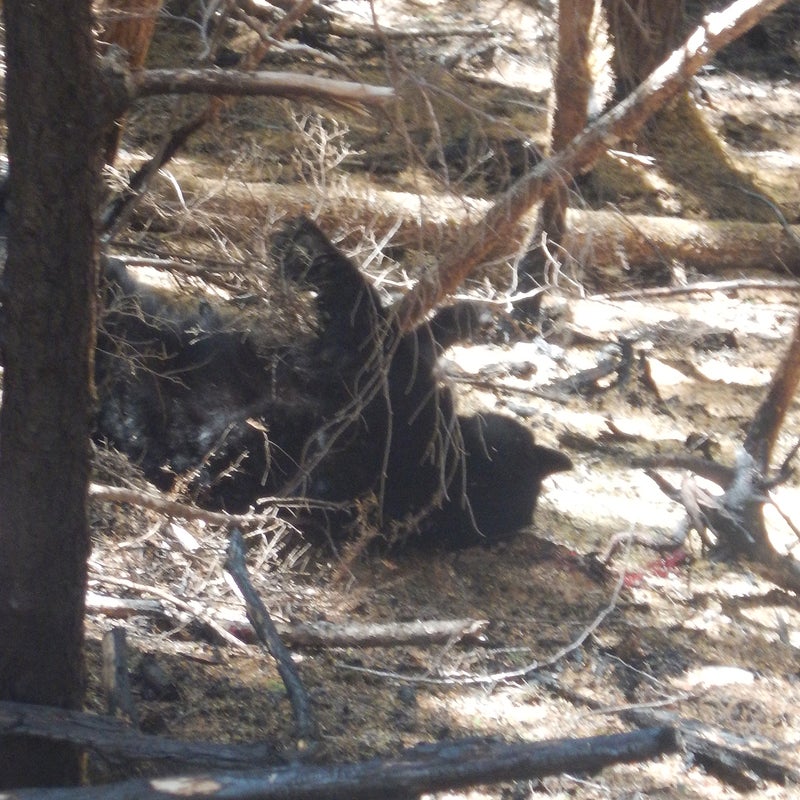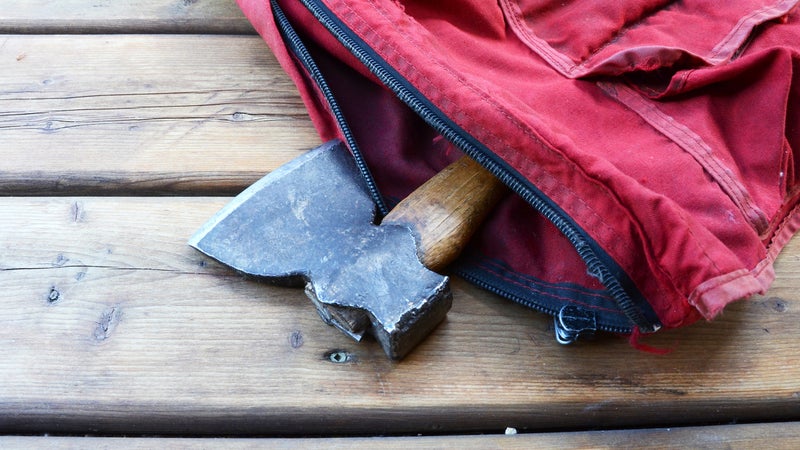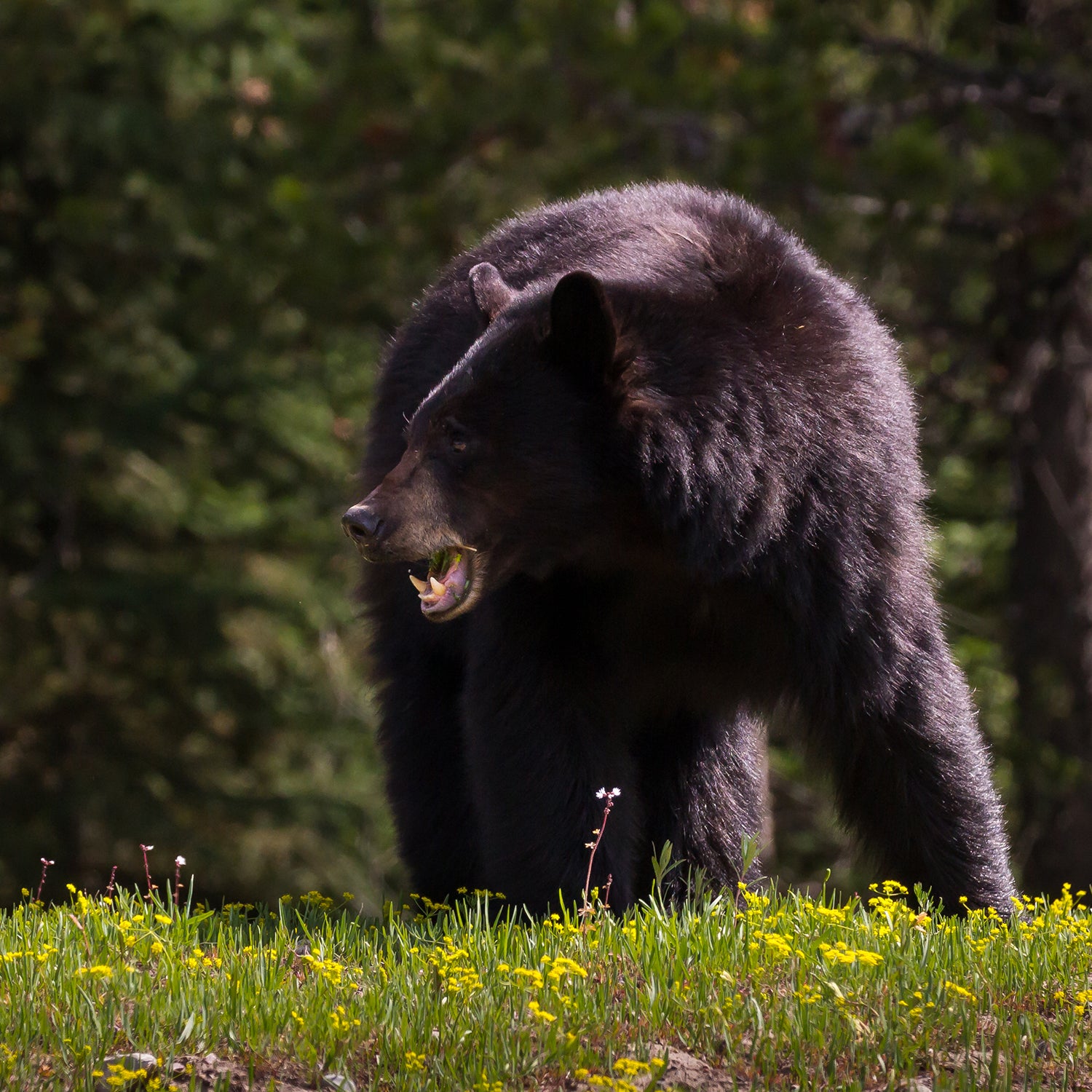If it wasnŌĆÖt for his dadŌĆÖs hatchet, Alex Woods might not be alive.
On June 26, Woods,╠²a forest pathologist who works for the provincial government of British Columbia, was attacked by an adult black bear while walking alone in╠²the bush not far from the small Gitxsan village of Gitanyow. He survived the encounter, and╠²the bear didnŌĆÖt. Yesterday afternoon, he told me the story over a few much-needed beers on the patio of his home near Smithers.
A lean 54-year-old╠²with a close-cropped silver beard, Woods has been working in the backcountry for decades. HeŌĆÖs a╠²whitewater paddler, hunter, and outdoorsman. Thoughtful and soft-spoken,╠²he was still rattled as he ran through the details.
ŌĆ£I was going out to check for the presence of Armillaria root disease in an undeveloped piece of forest,ŌĆØ he says. ŌĆ£IŌĆÖm a bit technologically challenged, but I had a GPS and the coordinates I needed to get to, so I was just taking a bearing and walking to that. As I was going in I saw freshly broken fireweed, so I knew there was probably an animal around, but there are╠²animals everywhere up here. And when IŌĆÖm by myself I always make a point of yelling, so I was going ŌĆśYo, bear, yo bear.ŌĆÖŌĆØ
About 700 feet into the forest, Woods came to a deep gully where a section of hemlock and balsam sloped down to a small creek.
ŌĆ£I could hear the creek at the bottom,ŌĆØ he says, ŌĆ£so I yell even louder, because thatŌĆÖs a place where you could potentially surprise a bear. It was really steep, like 45 degrees, with mature timber that was freshly burnt from last year, so it was relatively open and the visibility was good. I was about three quarters of the way down the slope, and IŌĆÖd noticed some morels that were coming up, so I picked a couple, but then made sure I was back on my bearing and kept yelling. And then I look up, and thereŌĆÖs this bear running at meŌĆöfull speed, no sounds, just running at me as fast as it can go from 100 feet away, straight up the slope.

ŌĆ£There was a charred tree about a foot in diameter right there, and a windfall tree across it, almost forming an ŌĆśLŌĆÖ. So I stepped╠²behind that and reached for the bear spray that was in my vest, and I couldnŌĆÖt get the frickinŌĆÖ lid off it.
ŌĆ£And then the bearŌĆÖs head came╠²right in,ŌĆØ he says, gesturing to his midriff, ŌĆ£and I hauled off and kicked it as hard I could, and that connected with its jaw and knocked it back. IŌĆÖm not a big guy, but because I was on such a steep slope, I was just big enough to get it. The bear fell back a bit, but then it came running around the tree and I kicked it hard again in the head, yelling as loud as I could the whole time. It took off and ran up another burned tree about eight feet away, still staring at me.ŌĆØ
For a split second, Woods may have thought the encounter was de-escalating. But it wasnŌĆÖt. Fortunately, he had a hatchet with him, inherited from his father, the same one he always carries with him in the bush. Like his bear spray, heŌĆÖd had it stashed in his cruiser vest, a multipocketed work vest that many foresters wear to carry tools on the job.
ŌĆ£IŌĆÖve always felt if anything really hit the fan,ŌĆØ he says, ŌĆ£IŌĆÖd want to have a hatchet or an axe.ŌĆØ
ŌĆ£So then the bear dropped down from the tree,ŌĆØ he continues. ŌĆ£And as it was doing that, IŌĆÖd reached into the back of my vest. The zipperŌĆÖs broken, so I was able to get at my hatchet fast. But the bear was right back on me by then, so I just sank the hatchet into its head. I was lucky enough that it happened where those trees were, and on a such steep slope. I wouldnŌĆÖt have been able to kick it otherwise, or get it on the head. Those trees slowed it down, and fortunately I didnŌĆÖt struggle╠²getting the hatchet out like I struggled with the bear spray. But also, if it wasnŌĆÖt for those two charred trees, IŌĆÖd probably be dead.ŌĆØ
After Woods struck the bear, it slumped away and rolled down the hill.
ŌĆ£It was lying on its back,ŌĆØ he says, ŌĆ£and it looked like it was still breathing, but I kept watching because I didnŌĆÖt want to turn my back to climb the hill. And I didnŌĆÖt want to leave the fort, such as it was, of those two logs, so I waited maybe three minutes, trying to see if it was going to get up or if it was dead. Then I decided to get the heck out of Dodge.ŌĆØ

Woods backpedaled up the hill and then made a beeline╠²to his truck, looking behind him the whole way, hoping the bear wouldnŌĆÖt get up and come after him once more.
Back in Smithers, he told the B.C. Conservation Officer Service about the attack. Yesterday officers located the site and found the bear still alive, but mortally wounded, with its skull opened by the hatchet blow. The officers were armed and killed the bear.
ŌĆ£Afterward they called and told me it was a sow with cubs,ŌĆØ he says, ŌĆ£and thatŌĆÖs really fŌĆÖd up. ThatŌĆÖs not good at all. IŌĆÖm still processing that. But before it happened, I did everything youŌĆÖre supposed to do, and exactly whatŌĆÖs worked for me for 35 years. I yelled, I made lots of noise. A mother bear, if it was a normal situation, would have heard that, even though it was near a creek. The experts IŌĆÖve talked to today told me it was totally predatory behavior. There was no warning. They said that bear wanted youŌĆöand theyŌĆÖre right, it wanted me.ŌĆØ
Woods isnŌĆÖt sure why it happened, though he notes river levels in the area are extremely low for this time of year, and he suspects the bearŌĆÖs behavior may be a reflection of a drought-affected ecosystem. However, he says the bear looked ŌĆ£vitalŌĆØ and not weakened or starving.╠²Today, conservation officers confirmed the bear was in good health and weighed somewhere between 150 and 200 pounds.
As for what we can all learn from his ordeal, Woods is adamant about having bear spray at the ready and being well practiced in its useŌĆöif heŌĆÖd been quicker at getting the safety cap off, the bear might still be alive, too.
ŌĆ£It has to be totally accessible,ŌĆØ he says. ŌĆ£Because it all happens so fast. The whole process, between seeing the bear charging up the hill until I sunk the hatchet in its head, was maybe 15 seconds, including me kicking it twice in the head. It was so fast, there just wasnŌĆÖt any time to mess around with the clip.ŌĆØ

Woods will be back in the bush again soon, but the battle with the bear is making him think harder about being out alone.
ŌĆ£ItŌĆÖs going to make hunting a little more challenging,ŌĆØ he says. ŌĆ£IŌĆÖve been successful moose hunting by myself, but IŌĆÖm thinking thatŌĆÖs going to be pretty hard to do. I think this is going to be with me for the long haul.ŌĆØ


